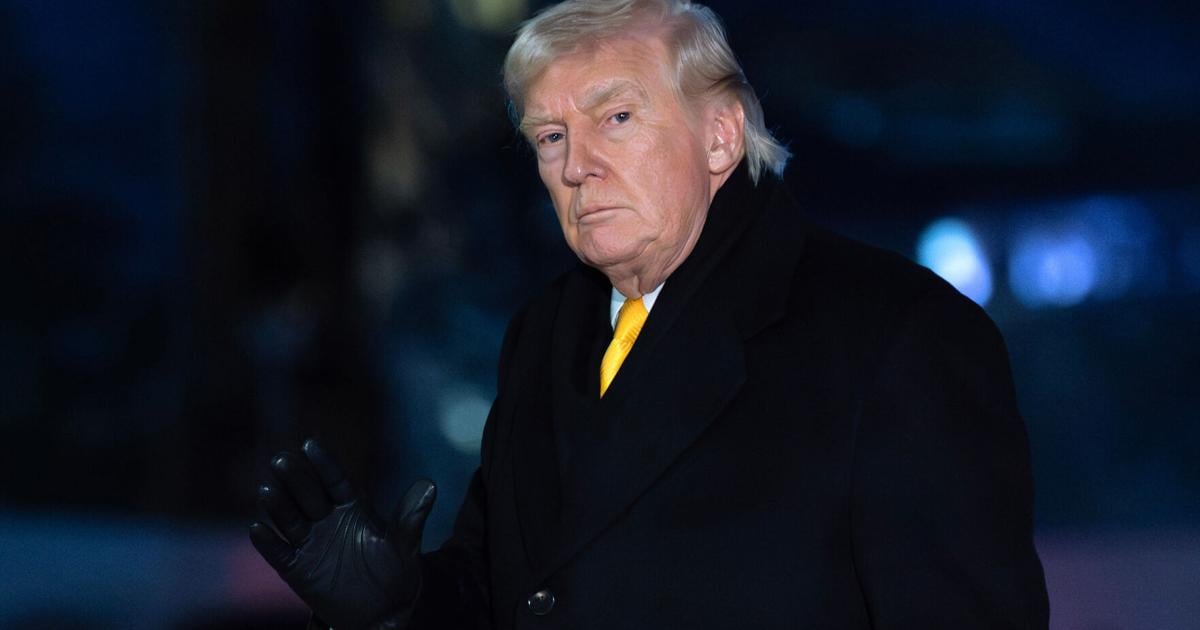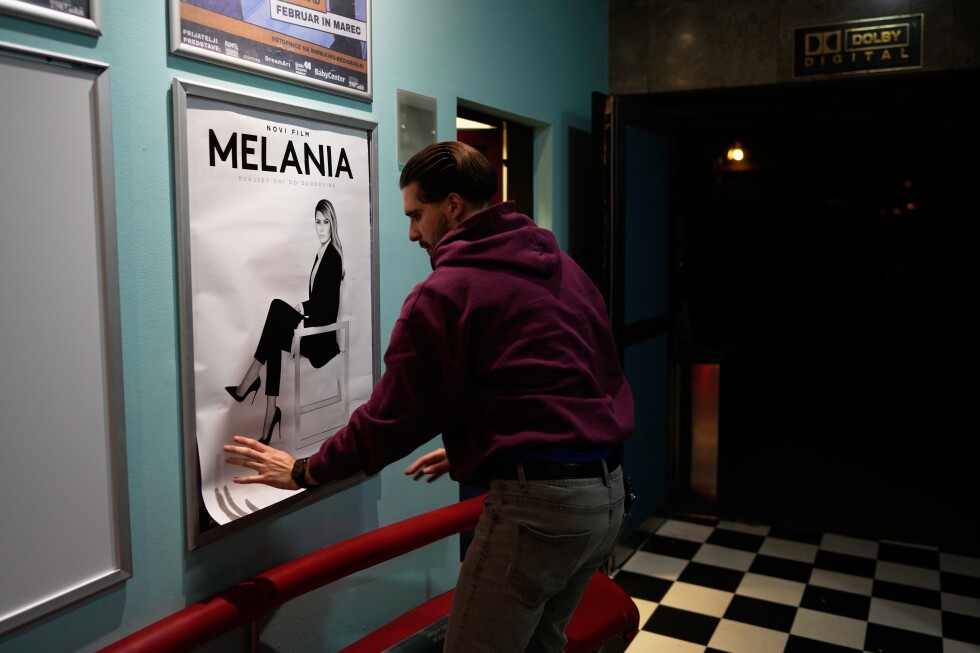The Dictatorship
I’m a corruption expert — and I’ve never seen a grift as blatant as Trump’s meme coin dinner

Unbelievable.
That’s the first word that came to mind when I saw President Donald Trump’s announcement last week that he will host a dinner for the 220 top holders of the $TRUMP meme coincomplete with a private reception and White House tour for the top 25 investors.
Trump’s efforts to grift off the presidency are not new, and his first term was largely defined by corruption and self-dealing. My organization, Citizens for Responsibility and Ethics in Washington, tracked 3,700 conflicts of interest over the course of his four years in office. All of these conflicts stemmed from Trump’s failure to meaningfully divest from his business holdings.
Throughout those thousands of examples, I’m not sure we ever saw anything as blatant as this meme coin dinner.
But throughout those thousands of examples, I’m not sure we ever saw anything as blatant as this meme coin dinner. This is over the top — even for Trump — because while the practice of putting money in his pocket and subsequently gaining access to the presidency is far from new, it is more shameless than it has ever been. And even MAGA Republicans are beginning to take note. On Friday, Trump ally Sen. Cynthia Lummis, of Wyoming, for example, said the dinner “gives me pause.”
Let’s be explicit about what’s happening here: Trump appears to be auctioning off access to the presidency. The more of his cryptocurrency that people buy, the higher their chances of meeting Trump at his club. And there’s no ambiguity about who is profiting. Trump launched $TRUMP on Jan. 17, and Trump is able to personally profits in a few ways. As The New York Times reported:
A business entity linked to Mr. Trump owns a large tranche of the coins, meaning the president personally profits every time the price increases, at least on paper. Mr. Trump and his business partners also collect fees when the coins are traded, a windfall that amounted to nearly $100 million in the weeks after the coin debuted in January.
The public is clearly paying attention — after Trump made his reception announcement, the price of Trump’s coin surged more than 50%. That brings Trump more money. He may also stand to make an additional profit by holding the dinner at one of his golf clubs.
The buying process is also extremely opaque. At the end of the day, we don’t know everyone who is spending money at his properties, investing in Truth Social or buying up his crypto assets. (Neither the White House nor the company behind the meme coin responded to recent NBC News requests for comment.)
This raises glaring ethics concerns but, unfortunately, for the most part, our ethics laws outside of the Emoluments Clauses of the Constitution don’t apply to the president. Those clauses bar the president from receiving profits, gains or advantages from foreign, state and federal governments. Unless a state, federal or foreign government purchased the $TRUMP coins, there’s very little we, or anyone, can do.
But because the buyers behind crypto transactions are generally not disclosedforeign governments could in fact be buying these coins, meaning that Trump could be violating the Constitution without the public finding out. Individuals or special interests could also be buying the coins in the hopes of directly influencing presidential decisions that will affect all of us. Here, too, the public likely wouldn’t know.
This is unacceptable.
In 2019, the Trump administration announced its intention to hold the G-7 summita gathering of heads of state and government officials from seven major countries, at Trump’s Doral golf resort. This was met with widespread outrageand just two days later, the administration reversed course. Similar outrage is appropriate, and needed, here.
A president is supposed to serve the public, not his own interests or the interests of a wealthy few. With this meme coin dinner, Trump is giving the highest bidders access to the president while lining his own pockets. These wealthy investors are getting a unique chance to potentially influence decisions that could affect regular Americans’ lives. Meanwhile, tens of thousands of civil servants are losing their jobs thanks to his administration’s budget cuts, with a possible recession on the horizon as a result of Trump’s tariff policy.
This is disturbing corruption, and we cannot allow it to pass by as a new normal.
Noah Bookbinder is the executive director of Citizens for Responsibility and Ethics in Washington. He is a former federal corruption prosecutor.
The Dictatorship
The Latest: Justice Department will allow lawmakers to see unredacted Epstein files

Olympic Sports on TV for Wednesday, Feb. 11
Sports on TV for Wednesday, Feb. 11
10-wicket wins at the men’s T20 World Cup
The Dictatorship
‘Melania’ falls steeply at the box office

NEW YORK (AP) — Hollywood largely ceded attention to football over a slow box-office weekend, with the survival thriller “Send Help” repeating as No. 1 in ticket sales and the Melania Trump documentary “Melania” falling sharply in its second weekend.
Super Bowl weekend is typically one of the lowest attended moviegoing times of the year. It was the second slowest weekend last year and in 2024 it ranked dead last for moviegoing.
Studios instead put their focus on advertising movies for the massive television audience. Among the trailers expected to hit the NFL broadcast Sunday were The Walt Disney Co.’s “Mandalorian and Grogu,” Lionsgate’s Michael Jackson biopic, “Michael” and Universal Pictures’ “The Super Mario Galaxy Movie.”
In North American theaters, the Disney.-20th Century Studios release “Send Help,” directed by Sam Raimi, lead all films with $10 million in its second weekend, according to studio estimates Sunday. With $53.7 million globally thus far, the R-rated survival thriller has proved a solid midbudget success. Disney meanwhile watched its remarkably long-lasting “Zootopia 2″ cross $1.8 billion worldwide in its 11th week of release.
“Melania,” from Amazon MGM, added 300 theaters in its second weekend but dropped steeply with to $2.4 million in ticket sales, down 67% from its much-discussed debut. The rapid downturn means the Brett Ratner-directed documentary is likely heading toward flop territory given its high price tag. Amazon MGM paid $40 million for film rights, plus some $35 million to market it.
The North American total for “Melania” stands at $13.4 million. Amazon MGM has not released international figures, though they’re expected to be paltry.
Kevin Wilson, head of domestic distribution for the studio, said the movie’s box-office performance “is a critical first moment that validates our wholistic distribution strategy, building awareness, engagement, and provides momentum ahead of the film’s eventual debut on Prime Video.”
The film’s ticket sales — which would be very good for a less expensive documentary — were a talking point throughout the week. Late-night hosts Stephen Colbert and Jimmy Kimmel hammered the movie’s sales. Kimmel called them a “rigged outcome.” Elsewhere in theaters, the Italy-set Kevin James romantic comedy “Solo Mio” debuted with a robust $7.2 million, a major win for Angel Studios, best known for its faith-based releases. “Stray Kids: The Dominate Experience,” a K-pop concert film released by Bleecker Street, launched with $5.6 million, and an additional $13.2 million overseas. The Luc Besson-directed Bram Stoker adaptation “Dracula” opened with $4.5 million, a studio-best debut for the indie distributor Vertical.
One of the most unusual releases in theaters, however, remains the low-budget indie “Iron Lung.” The YouTube filmmaker Markiplier, whose real name is Mark Fischbach, self-financed and self-distributed the R-rated video game adaptation, along with writing, directing and starring in it. In its second weekend, “Iron Lung” collected $6.2 million, bringing its two-week total to $31.2 million. It cost $3 million to make.
Top 10 movies by domestic box office
With final domestic figures being released Monday, this list factors in the estimated ticket sales for Friday through Sunday at U.S. and Canadian theaters, according to Comscore:
1. “Send Help,” $10 million.
2. “Solo Mio,” $7.2 million.
3. “Iron Lung,” $6 million.
4. “Stray Kids: The Dominate Experience,” $5.6 million.
5. “Dracula,” $4.5 million.
6. “Zootopia 2,” $4 million.
7. “Avatar: Fire and Ash,” $3.5 million.
8. “The Strangers: Chapter 3,” $3.5 million.
9. “Shelter,” $2.4 million.
10. “Melania,” $2.4 million.
The Dictatorship
Why Trump doesn’t want home prices to fall

WASHINGTON (AP) — President Donald Trump wants to keep home prices highbypassing calls to ramp up construction so people can afford what has been a ticket to the middle class.
Trump has instead argued for protecting existing owners who have watched the values of their homes climb. It’s a position that flies in the face of what many economists, the real estate industry, local officials and apartment dwellers say is needed to fix a big chunk of America’s affordability problem.
“I don’t want to drive housing prices down. I want to drive housing prices up for people that own their homes, and they can be assured that’s what’s going to happen,” Trump told his Cabinet on Jan. 29.
That approach could bolster the Republican president’s standing with older voters, a group that over time has been more likely to vote in midterm elections. Those races in November will determine whether Trump’s party can retain control of the House and Senate.
“You have a lot of people that have become wealthy in the last year because their house value has gone up,” Trump said. “And you know, when you get the housing — when you make it too easy and too cheap to buy houses — those values come down.”
But by catering to older baby boomers on housing, Trump risks alienating the younger voters who expanded his coalition in 2024 and helped him win a second term, and he could wade into a “generational war” in the midterms, said Brent Buchanan, whose polling firm Cygnal advises Republicans.
“The under-40 group is the most important right now — they are the ones who put Trump in the White House,” Buchanan said. “Their desire to show up in an election or not is going to make the difference in this election. If they feel that Donald Trump is taking care of the boomers at their expense, that is going to hurt Republicans.”
The logic in appealing to older voters
In the 2024 presidential election, 81% of Trump’s voters were homeowners, according to AP VoteCast data. This means many of his supporters already have mortgages with low rates or own their homes outright, possibly blunting the importance of housing as an issue.
Older voters tend to show up to vote more than do younger people, said Oscar Pocasangre, a senior data analyst at liberal think tank New America who has studied the age divide in U.S. politics. “However, appealing to older voters may prove to be a misguided policy if what’s needed to win is to expand the voting base,” Pocasangre said.
Before the 2026 elections, voters have consistently rated affordability as a top concern, and that is especially true for younger voters with regard to housing.
Booker Lightman, 30, a software engineer in Highlands Ranch, Colorado, who identifies politically as a libertarian Republican, said the shortage of housing has been a leading problem in his state.
Lightman just closed on a home last month, and while he and his wife, Alice, were able to manage the cost, he said that the lack of construction is pushing people out of Colorado. “There’s just not enough housing supply,” he said.
Shay Hata, a real estate agent in the Chicago and Denver areas, said she handles about 100 to 150 transactions a year. But she sees the potential for a lot more. “We have a lack of inventory to the point where most properties, particularly in the suburbs, are getting between five and 20 offers,” she said, describing what she sees in the Chicago area.
New construction could help more people afford homes because in some cases, buyers qualify for discounted mortgage rates from the builders’ preferred lenders, Hata said. She called the current situation “very discouraging for buyers because they’re getting priced out of the market.”
But pending construction has fallen under Trump. Permits to build single-family homes have plunged 9.4% over the past 12 months in October, the most recent month available, to an annual rate of 876,000, according to the U.S. Census Bureau.
Trump’s other ideas to help people buy houses
Trump has not always been against increasing housing supply.
During the 2024 campaignTrump’s team said he would create tax breaks for homebuyers, trim regulations on construction, open up federal land for housing developments and make monthly payments more manageable by cutting mortgage rates. Advisers also claimed that housing stock would open up because of Trump’s push for mass deportations of people who were in the United States illegally.
As recently as October, Trump urged builders to ramp up construction. “They’re sitting on 2 Million empty lots, A RECORD. I’m asking Fannie Mae and Freddie Mac to get Big Homebuilders going and, by so doing, help restore the American Dream!” Trump posted on social media, referring to the government-backed lenders.
But more recently, he has been unequivocal on not wanting to pursue policies that would boost supply and lower prices.
In office, Trump has so far focused his housing policy on lobbying the Federal Reserve to cut its benchmark interest rates. He believes that would make mortgages more affordable, although critics say it could spur higher inflation. Trump announced that the two mortgage companies, which are under government conservatorship, would buy at least $200 billion in home loan securities in a bid to reduce rates.
Trump also wants Congress to ban large financial institutions from buying homes. But he has rejected suggestions for expanding rules to let buyers use 401(k) retirement accounts for down payments, telling reporters that he did not want people to take their money out of the stock market because it was doing so well.
There are signs that lawmakers in both parties see the benefits of taking steps to add houses before this year’s elections. There are efforts in the Senate and House to jump-start construction through the use of incentives to change zoning restrictions, among other policies.
One of the underlying challenges on affordability is that home prices have been generally rising faster than incomes for several years.
This makes it harder to save for down payments or upgrade to a nicer home. It also means that the places where people live increasingly double as their key financial asset, one that leaves many families looking moneyed on paper even if they are struggling with monthly bills.
There is another risk for Trump. If the economy grows this year, as he has promised, that could push up demand for houses — as well as their prices — making the affordability problem more pronounced, said Edward Pinto, a senior fellow at the American Enterprise Institute, a center-right think tank.
Pinto said construction of single-family homes would have to rise by 50% to 100% during the next three years for average home price gains to be flat — a sign, he said, that Trump’s fears about falling home prices were probably unwarranted.
“It’s very hard to crater home prices,” Pinto said.
-

 The Dictatorship12 months ago
The Dictatorship12 months agoLuigi Mangione acknowledges public support in first official statement since arrest
-

 Politics12 months ago
Politics12 months agoFormer ‘Squad’ members launching ‘Bowman and Bush’ YouTube show
-

 The Dictatorship5 months ago
The Dictatorship5 months agoMike Johnson sums up the GOP’s arrogant position on military occupation with two words
-

 Politics12 months ago
Politics12 months agoBlue Light News’s Editorial Director Ryan Hutchins speaks at Blue Light News’s 2025 Governors Summit
-

 The Dictatorship12 months ago
The Dictatorship12 months agoPete Hegseth’s tenure at the Pentagon goes from bad to worse
-

 Politics12 months ago
Politics12 months agoFormer Kentucky AG Daniel Cameron launches Senate bid
-
Uncategorized1 year ago
Bob Good to step down as Freedom Caucus chair this week
-

 Politics10 months ago
Politics10 months agoDemocrat challenging Joni Ernst: I want to ‘tear down’ party, ‘build it back up’




